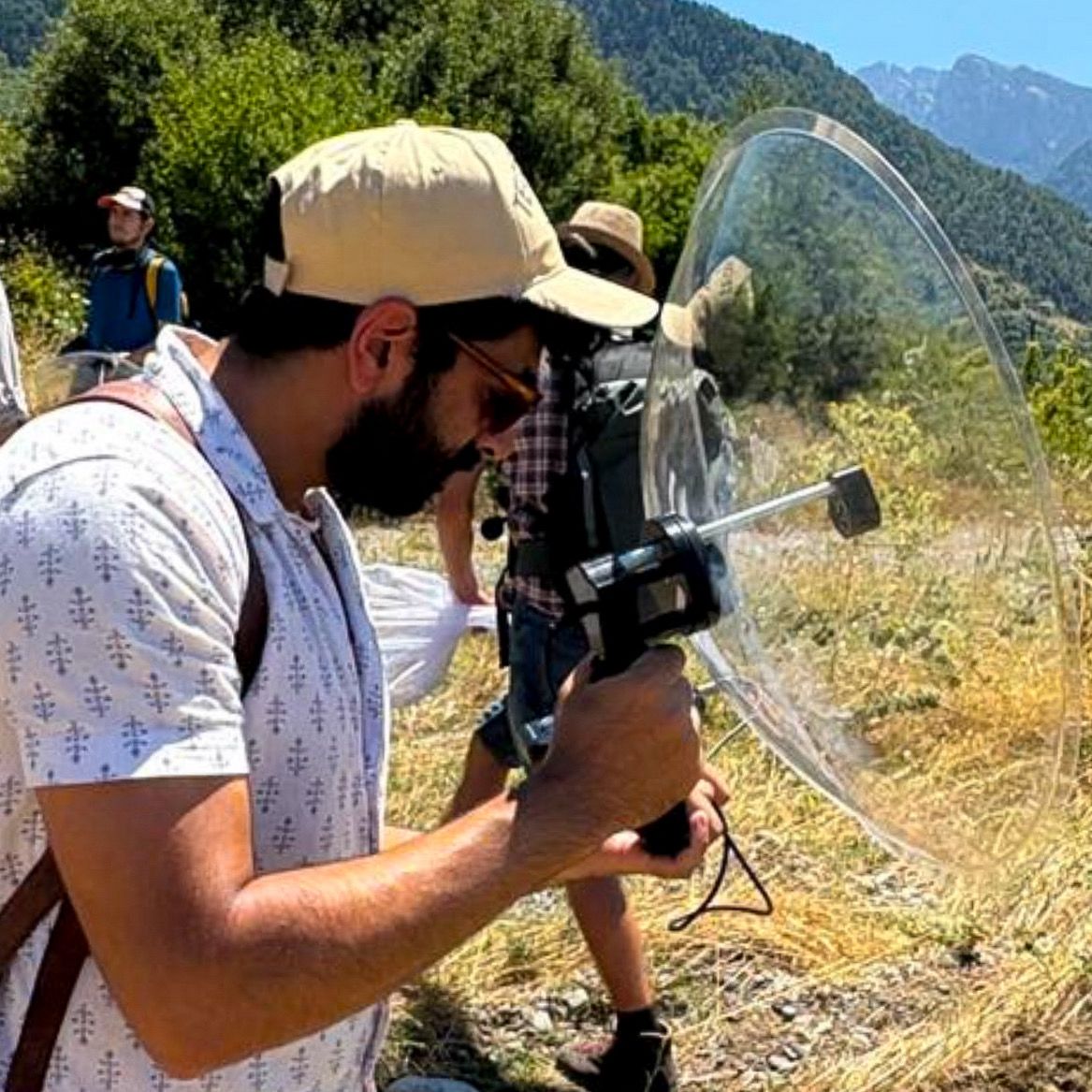Burooj Ghani

Biodiversity is declining at an alarming rate: the WWF Living Planet Index reports ~69% decline in monitored vertebrate populations since 1970, and ~1 million species are threatened with extinction (IPBES). My work is motivated by the need to build tools that provide reliable estimates of ecosystem health. I focus on sound because it scales: it captures soniferous life continuously, non-invasively, and across vast areas. My research combines machine learning with ecology and bioacoustics to make sound a core tool for biodiversity monitoring.
I trained as a computer scientist, drawn to algorithms and modeling problems. Later, I obtained my PhD in Computer Science from the University of Göttingen, where I ventured into bioacoustics. Since then I have specialized in computational bioacoustics, from advancing general-purpose representations for bioacoustics to developing open-source models such as AvesEcho. The model was integrated into Xeno-canto, the world’s biggest bird sound forum. To me, that was an important moment - it was no longer just an academic model, but something that birders and conservationists could actually use. More recently, I co-launched InsectSet459, an insect sound deep learning benchmark, to broaden acoustic monitoring beyond birds. My broader vision is to build computational tools that help us better understand and protect the living world.
news
| Sep 13, 2025 | I am co-organizing the NeurIPS 2025 Workshop on “AI for Non-Human Animal Communication”. |
|---|---|
| Mar 13, 2025 | I’ll be co-chairing a symposium titled: “General-purpose Deep Learning: Tapping into the Power of Pretrained Neural Networks” at the International Bioacoustics Conference (IBAC) taking place in Kerteminde, Denmark, from September 7-12, 2025. |
| Oct 16, 2024 | The birdsong recognition algorithm AvesEcho, which I developed at Naturalis, was added to Xeno-canto, the world’s biggest animal sound repository. The ML model is also the first one to be hosted on the forum. Read more here. The inference model is available in this GitLab repository. |
| Sep 25, 2024 | New preprint out! in which we explore different transfer learning methods, pre-trained models, and dataset characteristics to understand the effect on birdsong classification performance, especially out-of-distribution performance. |
| Apr 1, 2024 | Just launched the 2024 edition of the Few-shot bioacoustic event detection task within the DCASE challenge. |
| Dec 21, 2023 | Our paper is out in Nature Scientific Reports, in which we investigate pre-trained deep learning classifiers for downstream bioacoustics classification tasks and report global birdsong embeddings enable superior transfer learning. |
| Dec 17, 2023 | Drew Priebe’s thesis titled: “Efficient speech detection in environmental audio using acoustic recognition and model distillation”, which I had the pleasure of co-supervising alongside Dan Stowell, has resulted in a manuscript. |
| Sep 28, 2023 | Will be organising a symposium on “Computational and machine learning methods” at IBAC2023 in Hokkaido, Japan later this year. |
| Sep 22, 2023 | Presented my work on bird sound classification at the MAMBO project meeting in Malta. |
| Aug 25, 2022 | Starting work as a Postdoctoral Fellow in AI & Biodiversity at the Naturalis Biodiversity Center in Leiden, the Netherlands beginning Jan 2023. I will be working closely with Dan Stowell to develop audio recognition algorithms to identify a variety of European taxa. |
| Mar 25, 2022 | Will be heading to the K. Lisa Yang Center for Conservation Bioacoustics at the Cornell Lab of Ornithology, Cornell University, Ithaca, USA for a 4 months-long research stint. |
in the media
| Jul 26, 2025 | Nature Today: Artificial Intelligence for animal sounds is getting more intelligent |
|---|---|
| Nov 2, 2024 | Nature Today: A birdsong AI joins the world’s biggest bird sound forum |
| Jul 6, 2024 | Nature: Interpreting the call of the wild with AI |
| Jun 30, 2024 | Nature Today: Zeshonderd uur sprinkhaanmuziek online |